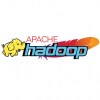Related Content
 |
5 SecOps Challenges and How to Overcome Them SecOps, or security operations, is a collaboration between information security and IT operations to keep a company’s data secure and reduce risk, all while maintaining agile timelines. But it can be difficult to start. Here are five challenges you should address to ensure your SecOps implementation is successful. |
|
 |
Trusting Your Data: Garbage In, Garbage Out Poor quality input will always produce faulty output. Improper validation of data input can affect more than just security; it can also affect your ability to make effective business decisions. Bad data can have impacts on how you make quantitative decisions or create reports, if you can’t trust the data you receive. |
|
 |
Migrating a Database? Consider These Factors First Database migration is usually performed with a migration tool or service. Migrating one database to another actually involves migrating the schemas, tables, and data; the software itself is not migrated. Whatever the reason for migration, before you start, explore the options and take these considerations into account. |
|
 |
Before Data Analysis, You Need Data Preparation One of the prerequisites for any type of analytics in data science is data preparation. Raw data usually has several shortcomings in structure, format, and consistency, so first it has to be converted to a usable form. These are some types of data preparation you can conduct to make your data useful for analysis. |
|
 |
Getting Support for the Tests You Need Done It’s often hard for teams to get sufficient time and resources for the amount and quality of tests they think are needed. It’s like management wants testing done but at the same time doesn’t want to commit what’s needed to do it. If that's your case, look at the business side, rank priorities, and negotiate resources. |
|
 |
Exploring Big Data Options in the Apache Hadoop Ecosystem With the emergence of the World Wide Web came the need to manage large, web-scale quantities of data, or “big data.” The most notable tool to manage big data has been Apache Hadoop. Let’s explore some of the open source Apache projects in the Hadoop ecosystem, including what they're used for and how they interact. |
|
 |
When to Use Different Types of NoSQL Databases Web-scale data requirements are greater than at a single organization, and data is not always in a structured format. NoSQL databases are a good choice for a larger scale because they're flexible in format, structure, and schema. Let’s explore different kinds of NoSQL databases and when it’s appropriate to use each. |
|
 |
Selecting a Cloud Service Cloud services are relatively new, and for those used to downloading and installing software, it may be daunting at first when trying to figure out which cloud service to use. Let’s analyze the different options—infrastructure as a service, platform as a service, and software as a service—and when you should use each. |




